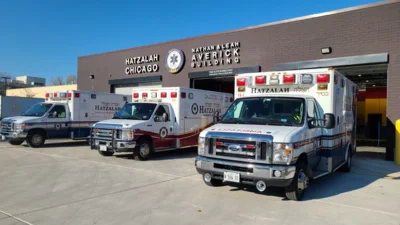Contributed photo
Contributed photo
Should Illinois taxpayers continue to support the demands of government employees at a time when private-sector workers are feeling the economic pinch of the current period?
The current stalemate between Illinois Gov. Bruce Rauner and the state's union for government workers, the American Federation of State, County and Municipal Employees (AFSCME), has produced some outspoken critics since negotiations broke down in January.
Austin Berg wrote an editorial for the Chicago Tribune recalling that AFSCME workers have 15 different types of paid leave while working for the government. They are allowed what many perceive to be an excessive amount of paid time off, unexcused tardiness and other perks unavailable to the common middle-class worker.
So what kinds of perks? Well, the nation's highest-paid state workers (after adjustments for the cost of living) are in Illinois. Workers get something referred to in the health insurance industry as "platinum level" benefits under the Affordable Care Act, yet those same workers only pay "bronze level" prices for their health benefits.
Meanwhile, Illinois taxpayers foot the bill for an astounding 77 percent of the average AFSCME member's health plan. It costs them nearly $15,000 per worker annually, according to illinoispolicy.org.
As for the negotiations process, the state of Illinois and AFSCME met nearly 70 times, formally negotiating 24 times and going over a few hundred proposals. The parties were agitated and could not come to an agreement.
After the last meeting, in which the ASCFME representative left with "nothing else to say" and "not interested in anything" the state had to say, Rauner asked the state's labor relations board to step in and declare an impasse, but a decision is still pending at this point.
The North Cook News reached out to the Illinois Technology & Manufacturing Association, a group that represents those industries. Dennis LaComb, a spokesman for Illinois TMA, said the private sector in manufacturing in addition to middle-class taxpayers in the state of Illinois perceive the issue negatively and foresee the consequences of such policy.
"I think from the articles you cited, the impact of AFSCME on the state and economy is clear, which is to say, 'negative,'" LaComb told North Cook News.
LaComb cited the usual effects that business leaders tend to mention, but also provided a picture of how that leads to the private-sector middle-class worker as well.
"Manufacturing's response is also negative in that the expense of expanding government inevitably leads to increased regulation and taxes, which inflates the cost of doing business in Illinois and inescapably leads to a contraction of manufacturing, resulting in fewer jobs, increased poverty, diminution of the middle class and continued migration of citizens out of the state," LaComb said.
But the expense is not the only gripe among those in the private sector and those paying taxes in the state of Illinois. AFSCME workers want pay hikes and even greater health benefits. Berg wrote about how workers are allowed to show up late to work and receive only warnings after more than 10 times in a single month. This could lead to other issues, including resentment among workers in the private economy that would have long been fired for such behavior, as they are not represented by AFSCME.






 Alerts Sign-up
Alerts Sign-up